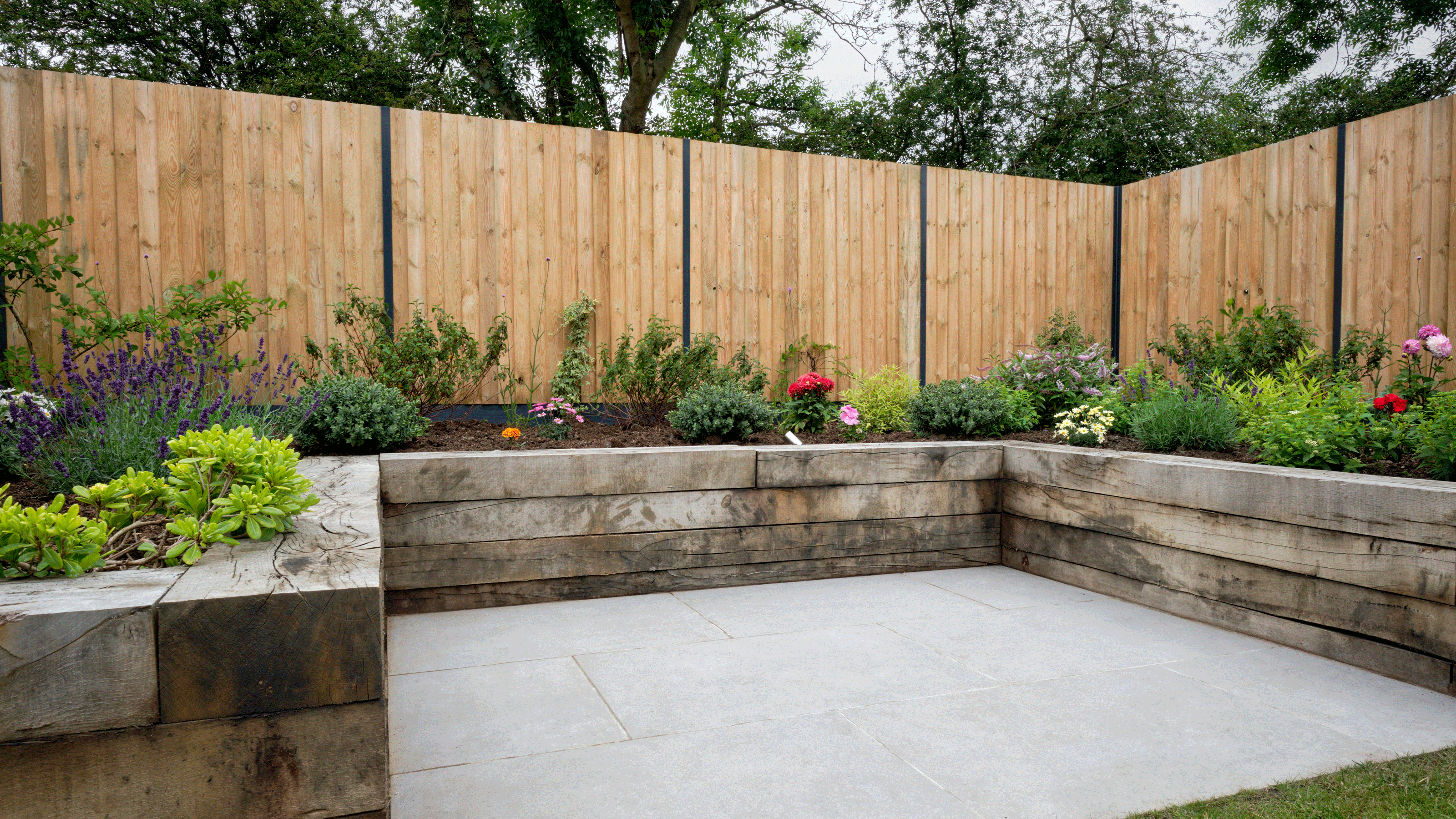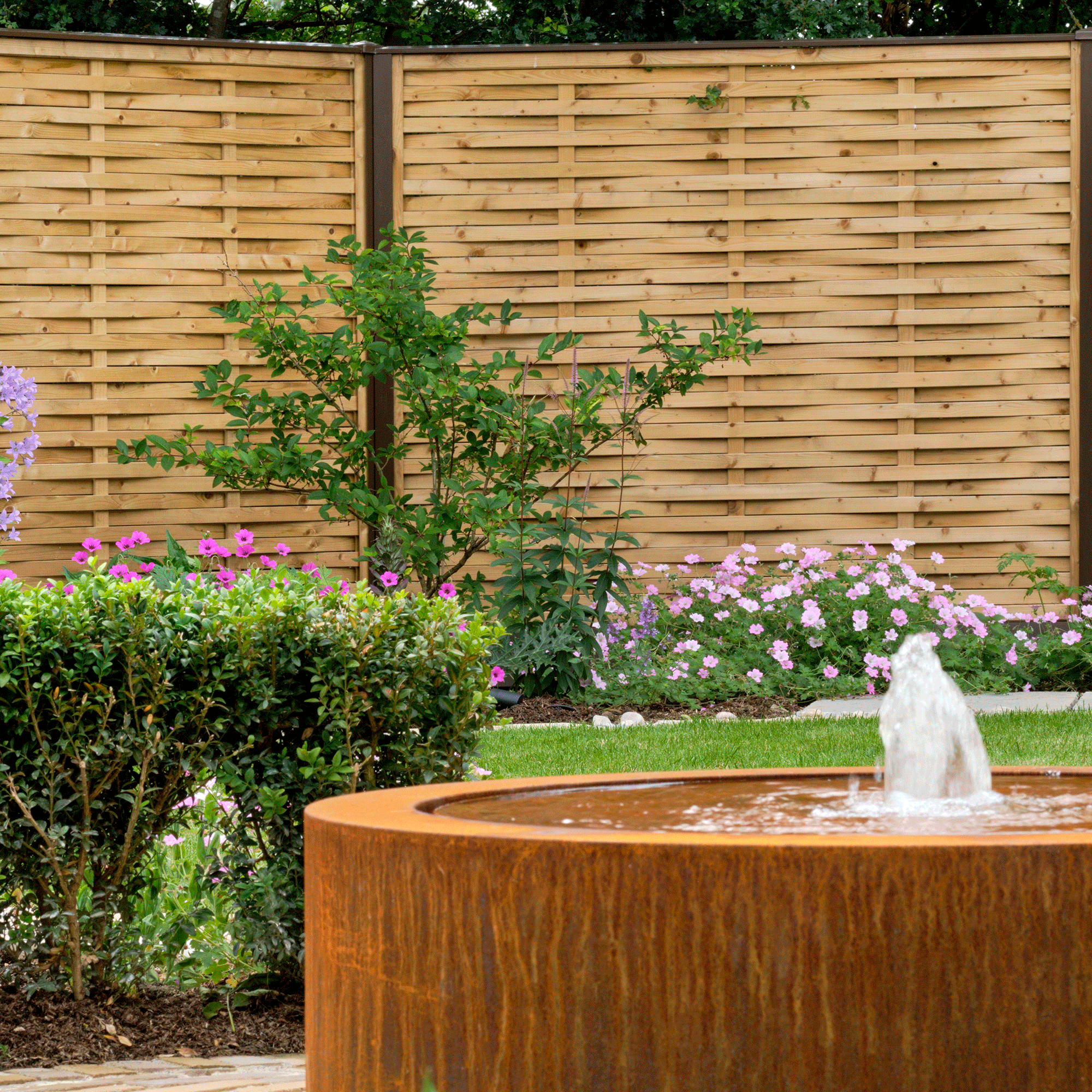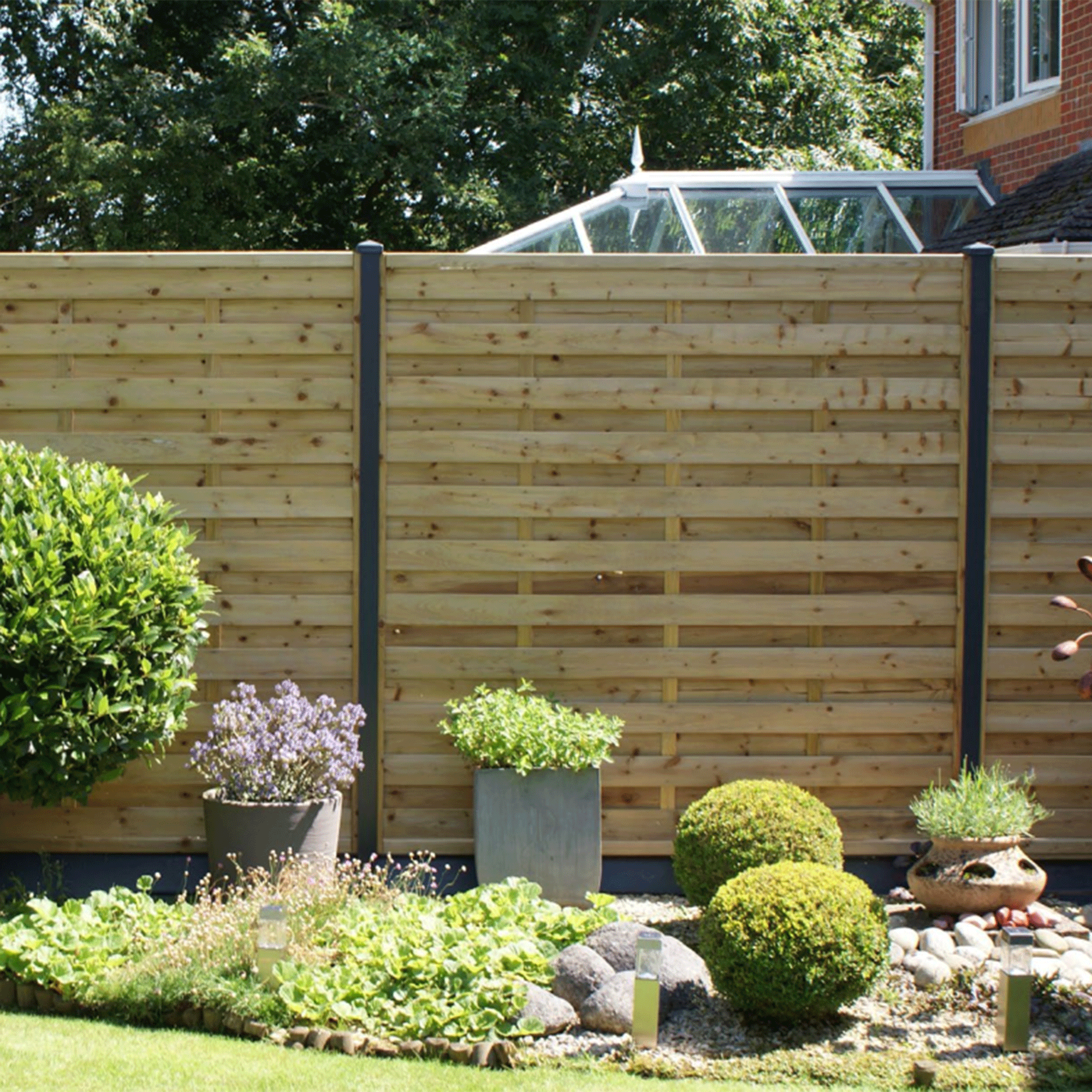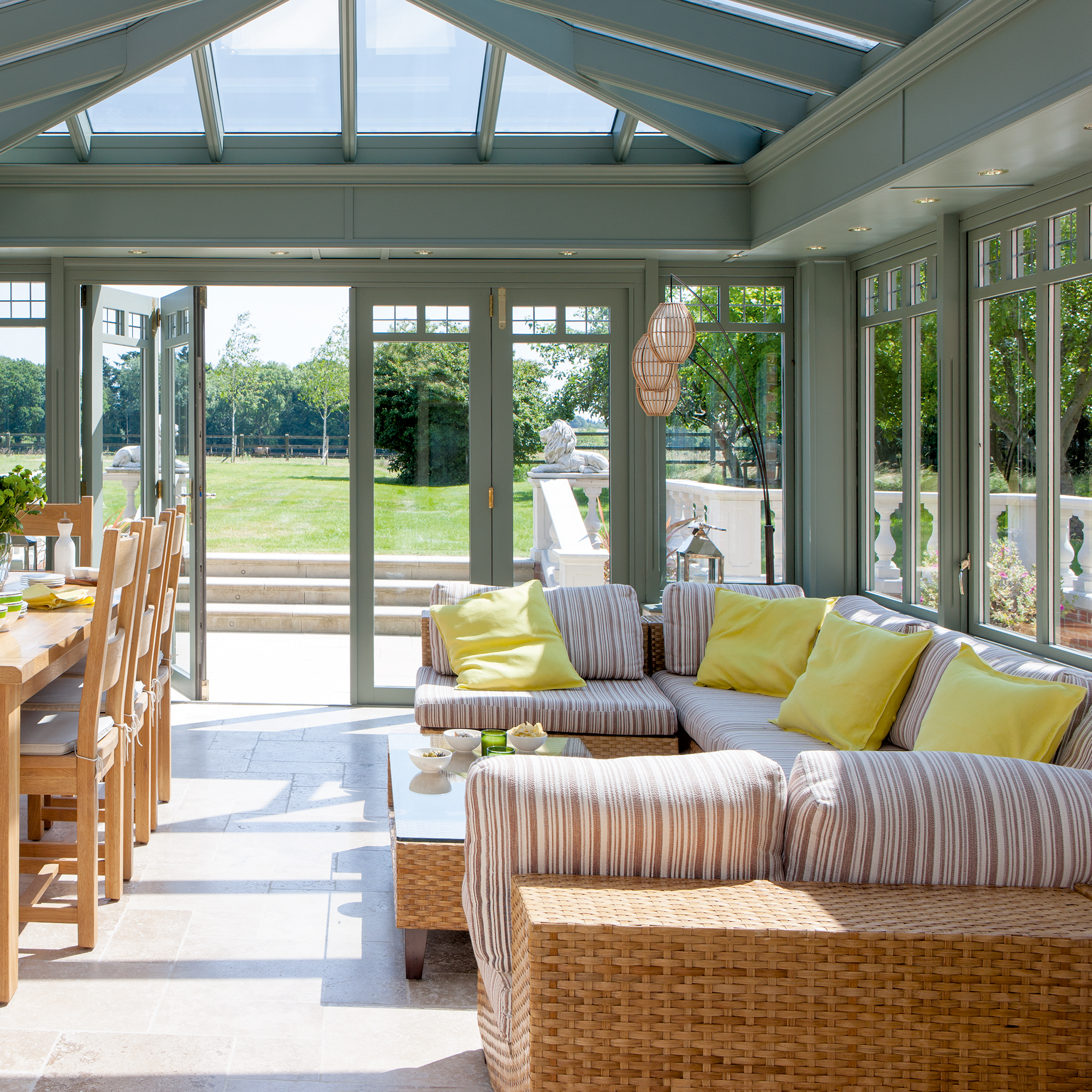How to winterproof your fencing so you’re not caught out by a sudden cold snap
5 simple ways to prepare your fence for winter with Durapost

While there might only be a few weeks of winter left this year, there’s never a bad time to winter-proof your home and garden for any coming cold snaps that may hit. And when it comes to winter-proofing, a good starting point is your garden fence.
After all, fences help to keep our little ones safe and protect our privacy in the warmer months. Winter can be a particularly tough time on your fencing with the rain, wind and frost increasing the chances of them getting quickly damaged. Winter-proof now, and you won’t regret it.
Here are some expert tips on preparing your garden fencing for the rest of this winter, and the next.

1. A waterproof sealant is a must
'If you have a traditional wooden fence, it’s important to know that snow and wood don’t get along,' says John Abernethie, CEO of fencing specialists DuraPost. 'When snow melts, the remaining water can be a huge threat. You’ll need to treat your fence with a waterproof sealant to prevent this.'
You could pay a professional to put a sealer on your fence, but it’s not necessary. Just remember to clean the wood before you spray or paint the sealant on, and strip off any fence water seal that might have remained from your last coating.
2. Swap wooden posts for steel
Waterproofing your fence isn’t exactly the most enticing proposition on a winter weekend.
Luckily there are now more durable and less high-maintenance options than wooden posts. A galvanised steel post system, like DuraPost, doesn’t rot, warp or crack, and is lighter yet stronger than traditional wooden or concrete fence posts.
'By opting for a steel fence post system, you won’t have to worry about water damage at all,' says John.

3. Go maintenance-free
Stacked composite gravel board fences have become increasingly popular in recent years, with a glossy, modern look that can really elevate your garden. Whatsmore they’re long-lasting, durable, and incredibly easy to look after.
'If you’re looking for an entirely maintenance-free fence, consider a stacked composite gravel board solution to complement your steel fence post system,' agrees John.
4. Wind-proofing is important
With Storm Eunice wreaking havoc last February, we all saw the dangers of having unsecure fixings in our garden – particularly when it came to fencing.
'Designed to address the pitfalls of outdated fencing systems, DuraPost is proven to withstand winds of up to 110 mph,' says John.
If your fence does fall down, firstly ensure your broken fence panel won’t cause any danger when you move it, adds John. 'I would then move it to a secure area in the garden, where it will not create any further problems. You can attempt to fix it as a temporary measure, however, this isn’t really a long-term solution as the integrity of your fence has now been compromised.

5. Always go for quality
Finally, if you are in need of replacing your fence, always choose a quality option that’s built to stand the test of time.
'Our garden fence is a valuable asset to your home,' says John. 'If you want a stable, secure fence to withstand the British winter weather for years to come, a quality product maintained in the correct way will help tremendously.'
Sign up to our newsletter for style inspiration, real homes, project and garden advice and shopping know-how
Ideal Home is here to give you the best advice on every aspect of running a home, from helping you choose the perfect paint colour to sorting a mortgage. Each article is written by an expert in their field, and packed with inspirational images to guide you in your project. Our sponsored content is not an editorial endorsement, but allows you to connect with brands to assist your home renovation journey and alerts you to products you may not have known about before.
-
 What is solar control glass? This is what the experts say
What is solar control glass? This is what the experts sayCould it be key to preventing your home overheating in summer?
-
 As a self-confessed shopaholic, I’m investing in these £8 Amazon hangers that triple wardrobe space – they’re a must if you have more clothes than space
As a self-confessed shopaholic, I’m investing in these £8 Amazon hangers that triple wardrobe space – they’re a must if you have more clothes than spaceThey’re a must if you have more clothes than space
-
 Breville's stylish bean-to-cup coffee machine has turned my kitchen into an at-home cafe – it's helped me kick my takeaway coffee habit for good
Breville's stylish bean-to-cup coffee machine has turned my kitchen into an at-home cafe – it's helped me kick my takeaway coffee habit for goodThe idiot-proof controls and consistent results have made it my morning latte saviour, but it's not without its flaws